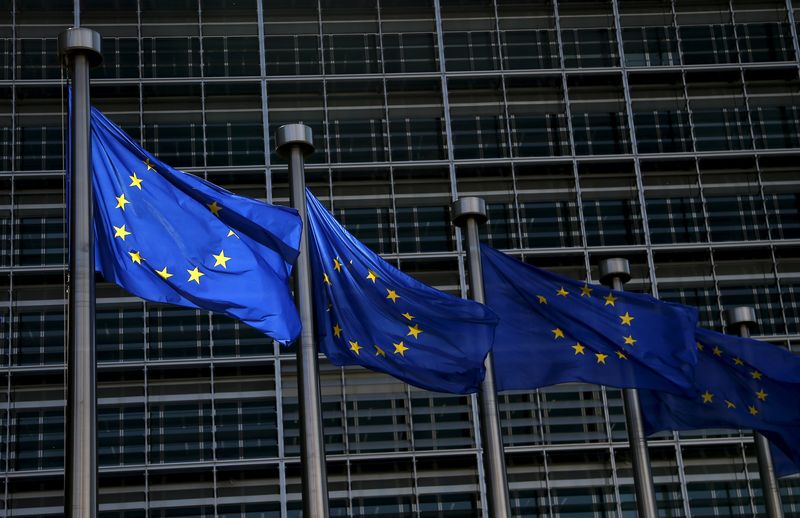Fed Governor Adriana Kugler to resign
(Bloomberg) --
European policy makers began a new campaign to shield economies from the coronavirus as the region’s two main central banks either delivered or signaled multi-pronged action to avoid a 2008-style crisis, and German Chancellor Angela Merkel promised to do “whatever is necessary.”
Bank of England Governor Mark Carney and European Central Bank President Christine Lagarde both said the right action now can ensure the impact of the disease is temporary, a veiled rallying call to global policy makers such as U.S. President Donald Trump to escalate their response before it’s too late.
Carney’s BOE delivered an emergency interest-rate cut, aid for loans and easier capital rules for banks, in a move coordinated with the U.K. Treasury that could yet prove a model for melding monetary and fiscal action. Lagarde told governments that the ECB will deliver “super-cheap” funding on Thursday and demanded their support, while Italy magnified its stimulus to tackle Europe’s worst outbreak.
The actions showcase how the remaining 2008 crisis veterans still in high office may be providing leadership to international peers. Carney was Bank of Canada governor at the time, and Lagarde was the French finance minister.
Merkel -- who was also embroiled in the 2008 meltdown -- promised spending on health measures, on top of a pledge to provide ailing companies with liquidity and extend furlough pay for workers. The country has the fullest budget coffers and has ample fiscal space to act, but a general aversion to deficits and debt there has proven a longstanding obstacle to stimulus.
The response collectively signaled a heightened sense of urgency in the region -- in contrast to the conflicting signals from the U.S. administration -- to react to a unique crisis that threatens to inflict a recession on the global economy. Europe appears to be overcoming its reluctance to deliver the holistic and coordinated fiscal action that investors say is needed to contain the virus.
“The fact that we’ve got a coordinated, concerted policy response from the BOE and the U.K. government is very encouraging,” said Neville Hill, chief European economist at Credit Suisse (SIX:CSGN) in London and a former British Treasury official. “We will be hoping for something similar from European policy makers in the next few days. Fiscal and monetary policy aren’t going to be able to prevent a lot of the damage, but they can certainly prevent a bad situation becoming considerably worse.”
Carney, in what may be his final act with just days left in the job, unveiled the BOE’s first emergency rate cut since that turmoil, matching the half-point reductions last week by the U.S. Federal Reserve and Bank of Canada. Officials also introduced a loan program that could exceed 100 billion pounds ($129 billion) in aid, and reduced a special capital buffer to give banks even more room to lend.
The governor coordinated the action both with the Treasury and his successor, Andrew Bailey. The BOE’s incoming chief, sitting alongside him, told reporters the bank has space to add more easing if needed.
The move was announced just hours before the U.K. budget, and presented as complementary to stimulus that will be delivered there in an initiative of joint fiscal and monetary action that makes the U.K. response stand out among peers.
“These measures will help keep firms in business and people in jobs, and they will prevent a temporary economic disruption from causing long-term harm,” Carney told reporters in London, sitting alongside Bailey. “This is a big package.”
Lagarde, speaking on a conference call late on Tuesday, warned that without concerted action, Europe risks seeing “a scenario that will remind many of us of the 2008 Great Financial Crisis,” according to a person familiar with her comments. With the right response, the shock will likely prove temporary, she added.
The ECB chief and her officials are looking at all their tools for Thursday’s scheduled policy decision, particularly measures to provide “super-cheap” funding and ensure liquidity and credit don’t dry up, said the person, who declined to be identified because the call was private. Investors are also expecting a small rate cut, and possibly a boost to quantitative easing.
In Italy, whose economy is frozen in a desperate effort to contain the region’s worst outbreak, Giuseppe Conte’s debt-laden administration magnified its stimulus with a planned 25 billion euros ($28.3 billion) in measures to combat the economic damage.
Where the current crisis response also contrasts with the 2008-09 turmoil is the less resolute approach of the U.S. under Trump. He didn’t appear at a White House briefing on the coronavirus outbreak on Tuesday, after promising a day earlier he’d hold a news conference to announce a “major” economic stimulus package.
“This is one of the concerns that sort of sits in an overarching way over the whole system right now: where is the leadership, where is the U.S. leadership which was one of the defining features of the crisis in 2008?,” Philipp Hildebrand, vice chairman of BlackRock Inc (NYSE:BLK). and a former president of the Swiss National Bank, told Bloomberg Television on Tuesday. “We had a very present, very strong and very focused leadership team in the U.S. that really coordinated this event both from the government side as well as from the central bank.”
